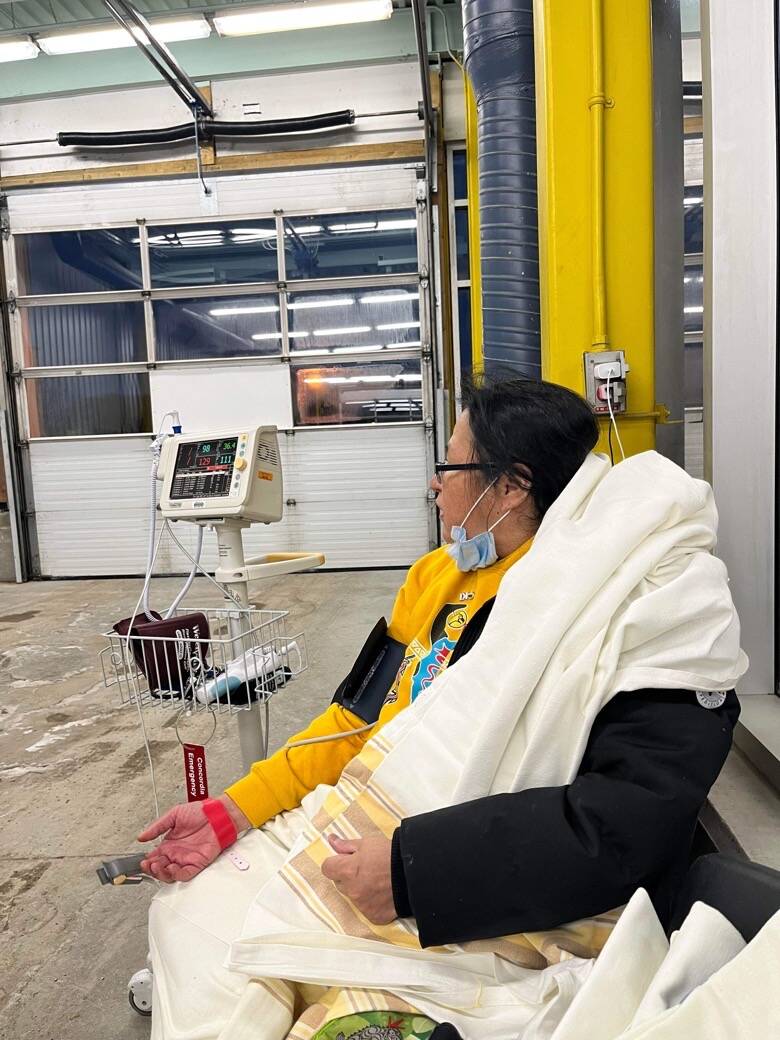From hallway medicine to driveway medicine
Advertisement
Read this article for free:
or
Already have an account? Log in here »
To continue reading, please subscribe:
Monthly Digital Subscription
$0 for the first 4 weeks*
- Enjoy unlimited reading on winnipegfreepress.com
- Read the E-Edition, our digital replica newspaper
- Access News Break, our award-winning app
- Play interactive puzzles
*No charge for 4 weeks then price increases to the regular rate of $19.00 plus GST every four weeks. Offer available to new and qualified returning subscribers only. Cancel any time.
Monthly Digital Subscription
$4.75/week*
- Enjoy unlimited reading on winnipegfreepress.com
- Read the E-Edition, our digital replica newspaper
- Access News Break, our award-winning app
- Play interactive puzzles
*Billed as $19 plus GST every four weeks. Cancel any time.
To continue reading, please subscribe:
Add Free Press access to your Brandon Sun subscription for only an additional
$1 for the first 4 weeks*
*Your next subscription payment will increase by $1.00 and you will be charged $16.99 plus GST for four weeks. After four weeks, your payment will increase to $23.99 plus GST every four weeks.
Read unlimited articles for free today:
or
Already have an account? Log in here »
Hey there, time traveller!
This article was published 19/12/2022 (1090 days ago), so information in it may no longer be current.
As political-campaign knockout punches go, there have been few as effectively wielded as the catchphrase employed by Manitoba’s NDP and then-leader Gary Doer back in 1999:
“Hallway medicine.”
The concept, which Mr. Doer promised to end if the NDP triumphed in that fall’s provincial election, referred to a health-care system so overburdened under premier Gary Filmon’s Progressive Conservatives that patients were spending hours, or days, languishing in hospital corridors because not enough beds, and not enough nurses to staff them, were available.

SUPPLIED
Alison Cox sits in the ambulance bay at Concordia Hospital.
The slogan worked; after 10 years as leader of the Opposition, Mr. Doer became Manitoba’s 20th premier. He did not, of course, eliminate hallway medicine as promised, but his victory was undoubtedly in large part a result of a very effective campaign that touted an easily digestible five-point plan and the continual recitation of “hallway medicine” as the embodiment of the Tories’ glaring policy failures.
So effective was “hallway medicine” as a political descriptive that it has loomed over every health-care-related announcement, criticism, policy and campaign since the NDP first invoked it nearly a quarter-century ago.
More recently, it was supplanted — or, perhaps, merely adapted — by another term, “highway medicine,” which was affixed by the Opposition NDP to circumstances in which pandemic-overwhelmed health-care facilities were forced to transfer patients to hospitals in other centres, sometimes many hours away and at times even outside the province’s borders.
As they look ahead to next year’s provincial election, no doubt NDP slogan-writers are swooning at the possibility of unleashing a series of anti-Tory ads highlighting the devolution of Manitoba’s health care under the Pallister/Stefanson PCs’ stewardship, from hallway medicine to highway medicine and beyond.
Last week, those itchy-fingered campaign copywriters were served up another dual-word damnation to complete the attack-ad trifecta: “driveway medicine.”
A couple who sought care at Concordia Hospital after having been diagnosed with pneumonia by a family doctor were made to wait six hours in an empty ambulance bay outside the hospital proper. The rationale, according to patient Alison Cox — who said she and her husband felt like “animals in a cage” while in the chilly parking area — was that they had to be isolated from other patients but there was no space in the hospital to do so.
“It’s like, I don’t know, post-apocalyptic,” said Ms. Cox, who added they were provided with blankets only after requesting them. “That’s what it feels like.
“We know that sometimes the care in hospitals isn’t great, because there’s just not enough beds. But we’re being left alone? That shouldn’t happen.”
They were brought inside to a treatment room after a six-hour wait; upon being given antibiotics and prescriptions for additional medication, they left the hospital about 90 minutes later.
It’s a very bad look for the hospital, and for a health-care system and a government that have been widely criticized for multiple system failures leading up to and during the still-lingering pandemic. And the response from the Winnipeg Regional Health Authority, whose spokesperson chalked it up to a “On rare occasions when all other isolation spaces are full” situation, seems as insensitive as it does unsatisfactory.
Given its history that includes documented neglect with catastrophic consequences, the WRHA should be given pause by Ms. Cox’s parting comment/question: “Would this kind of treatment happen to an elderly non-Indigenous couple? That’s part of our anguish, as well.”
Driveway medicine. Garage triage. Cold-storage care. However one chooses to frame it, chances are the current government will be hearing again — and again — about this badly handled incident in the lead-up to next fall’s provincial vote.

